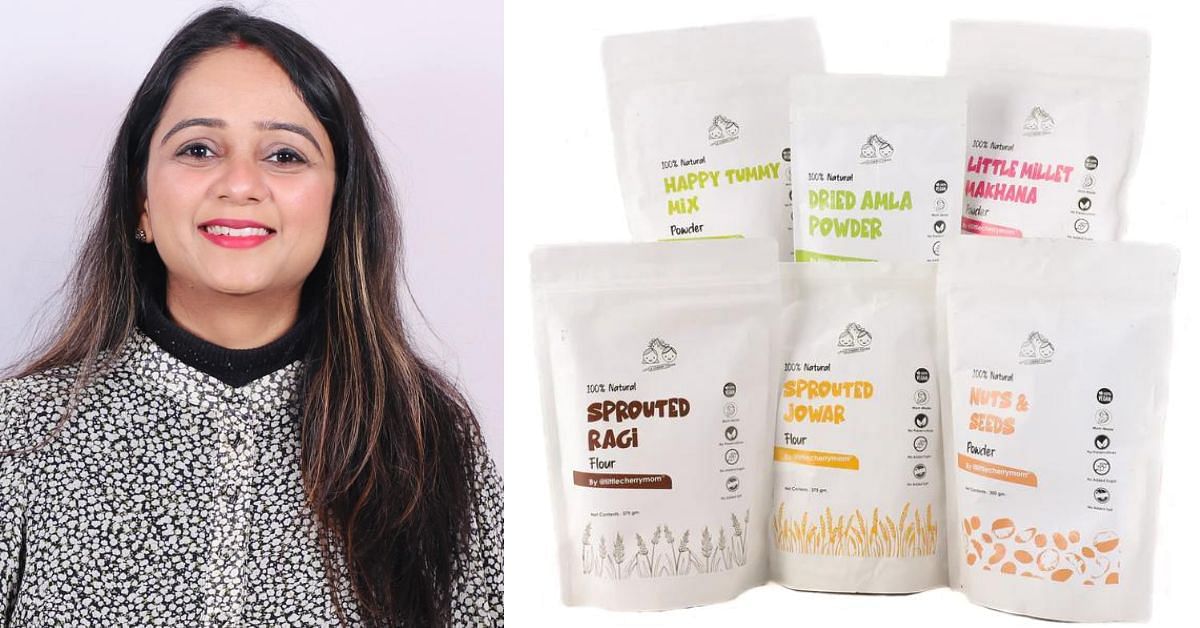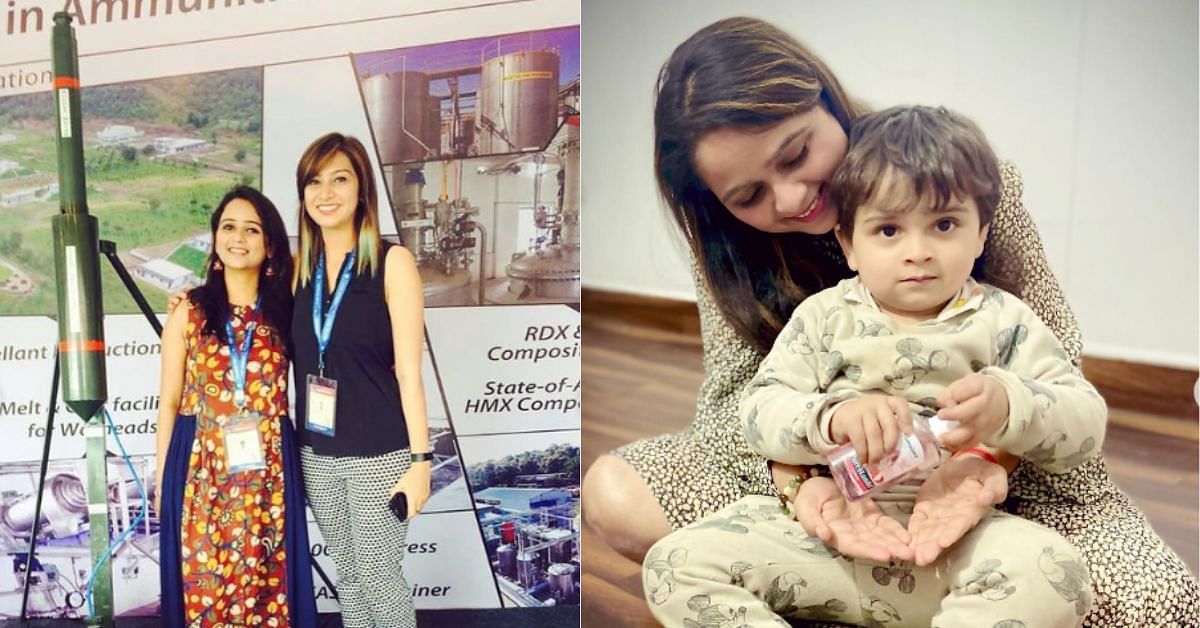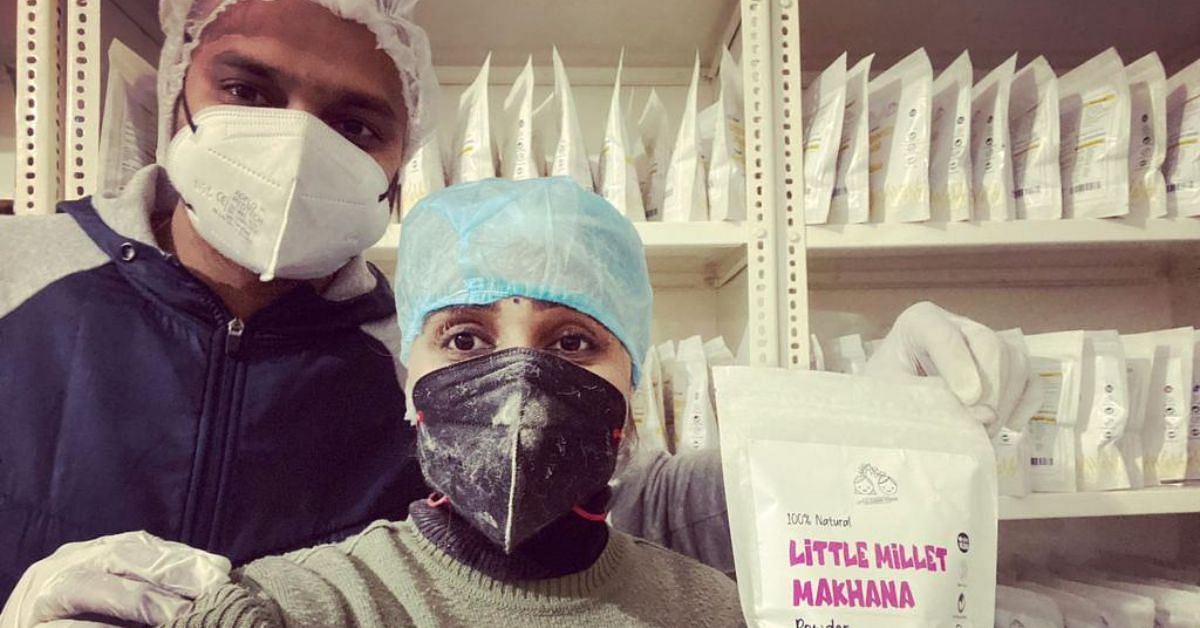In India, motherhood often forces women to leave the workforce — around 50% of women leave their jobs after the age of 30 to take care of children, and only 27% return. But for 32-year-old Jyoti Srivastava, a chemical engineer by profession, motherhood was not a barrier to her success. Instead, it birthed an entrepreneur in her.
Jyoti runs Little Cherry Mom, a millet-based baby food business that offers various products including millet flours, instant dosa mixes, sugar and jaggery free laddus (sweet), healthy snacks for kids such as khakras (thin crackers), A2 Bilona cow ghee, and amla prash (immunity booster made from Indian gooseberry), among others.
Since its launch in 2022, the company has catered to more than 12,000 customers. With this, she has been able to clock nearly Rs 1 crore of revenue.

From designing rockets to food recipes
Specialising in nanotechnology and rocket propellants, the engineer used to design rockets to be commissioned in the Indian Army. She loved her job, she says, but was overworked and underpaid. After working for two-and-a-half-years, she quit the job in 2018 to work as a freelancer for Air Force projects, but that did not work out well.
Then in 2019, she found out she was pregnant.
After childbirth, she faced several issues with breastfeeding her son, as he was unable to latch properly. As a mother, she did not want to make any mistakes during his solid food journey.
“I started digging on the internet to understand what was nutritious for my child. I learned that anything locally grown, such as sprouted flour, is best for your baby. Millet is very nutritious. It is a myth that a plant-based diet does not have the essential amino acids,” Jyoti, a resident of Uttar Pradesh’s Meerut, tells The Better India.
“Amaranth, which is commonly known as Rajgira, is a protein powerhouse. Sprouted ragi has 10 times more calcium than grains (wheat/rice). Millets also have healing properties. It helps with hormone and bone-related issues which breastfed children acquire from mothers,” she adds.

Scientific evidence shows millets boost child growth by 50 percent and they can significantly contribute to overcoming malnutrition.
Meanwhile, the National Health Mission highlights that the first 1,000 days of life, especially 6-24 months, form the critical window for growth and development in babies. Complementary feeding helps to fill in this gap after six months of age, which breast milk alone cannot cover. Failure to introduce complementary foods in this age group might lead to physical and brain growth faltering, micronutrient deficiency, malnutrition, and infectious diseases.
“This period is crucial, because nutritional deficiencies are difficult to fulfil later on. There are a lot of children who have stunted growth and suffer from anaemia, as well as Vitamin A and iron deficiencies. This leads to loss of appetite and loss of memory. To have a sustainable healthy life, you need to have a very good diet,” suggests Jyoti.
She further informs, “I also got to know that food companies are artificially infusing enzymes that can be naturally given. During the lockdown, I bought all the raw materials and started preparing food for my son Cherry.”
In 2022, this quest ended with the launching of Little Cherry Mom. Jyoti started this along with her husband Gaurav Goel, an MBA graduate who looks after the operations and finances of the company.

Mocked for career choice, parenting style
Being a studious person with a good job, Jyoti was mocked by relatives when she quit her job and started a parenting page to spread awareness about millet and breastfeeding.
“The transition was not easy. When I started blogging and making reels, people used to make fun of me. People were not very comfortable with my parenting style. I was labelled ‘Mummy blogger’,” laughs Jyoti.
“Fast forward to 2023, and everyone is recognising the importance of millet. Our startup even got recognised by the state government. They [relatives] do not mock me now,” she adds.
Launching the startup came with its own set of challenges. Apart from funds, the bootstrapped company had the challenge to compete with the market.
“Compared to other brands, our products are well-researched. For instance, we sprout ragi to an extent where protein content is highest and its digestibility is high. Our milk mix is a blend of spices mixed in a particular percentage to solve respiratory issues and boost immunity,” says Jyoti.
“Most of the brands do not manufacture themselves. We manufacture our products. A lot of brands also remove sugar and add jaggery, which has sucrose, which is eventually not good for babies. We have chosen dates to sweeten it. Our ‘happy tummy mix’ is our USP. It helps in curing chronic constipation in babies,” she adds.
For instance, one of her customers, Pranjal Tyagi, purchases Jyoti’s products for her four-year-old daughter with autism.
“The happy tummy mix has been helpful in constipation issues for my daughter. She is allergic to food that is high in gluten. We can give her bajra (pearl millet) or little millet chapati. Millet is good for her gut health and brain development,” the 29-year-old mom tells The Better India. For the past year, she has been regularly buying little millet makhana mix and happy mix for her daughter.
Meanwhile, Jyoti is also planning to introduce milk mixes and millet-based cereals next month in April.
For her, this work is extremely satisfying. “Babies are the foundation of the country. We are glad that we are able to do something good for them with this work,” signs off Jyoti.
Apart from the business, she conducts workshops to train mothers on cooking millet-based recipes. So far, she has trained 3,000 women with her workshops. She plans to educate rural women so that their babies are properly nourished.
Edited by Divya Sethu; All images: Jyoti Srivastava


